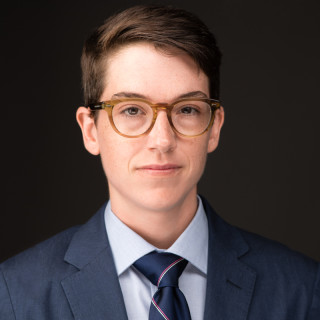
Though I had enjoyed the intellectual discipline of my second-year pathology course, nothing about the popular thought tree passed around among medical students suggested pathology would call to me. As a laid-back extrovert who loves meeting new people and having long, interesting conversations, I was always pushed toward specialties like psychiatry that involved direct patient care. I never even considered pathology until more than halfway through my fourth year of medical school.

For reasons unclear, I endured an entire eight weeks of holding retractors or scope lights during my surgery rotation but never got to see a frozen section or slide made of the suspicious specimens we removed. It frustrated me that I never got to use the baroque language of cell cycles and mechanisms from my first and second years of medical school to analyze a specimen and help a patient in real time.
Pathology had always been presented to me as a solitary, somewhat misanthropic specialty, one for people who could look through microscopes all day alone in a hospital basement and didn’t care to go near the actual patients whose cells and tissues they discussed. This could not have been farther from what I encountered. During my fourth-year pathology electives I interacted with mindful, compassionate physicians and residents who always invited me into the patient care dialogue. I watched them bravely hold space several times when they felt a surgeon should not proceed any further with a bowel resection, the patient still anesthetized on the table in wait. When they felt they needed to consult a subspecialist, such as the dermatopathologist for a suspicious epidermal growth, I watched them do so without ego, even if it took a little longer to get a full and satisfactory consensus.
I looked forward to gathering around the octopus microscope with its multiple arms and eyepieces to sign out slides with the attending physician. During this time, I encountered an environment in which the attending guided the discussion and the focus shifted to whomever in the room had the most amount of knowledge on a particular topic, not necessarily the most seniority. My own contributions were welcome, and areas I didn’t know much about were met as opportunities for learning, and not as an inherent lack of knowledge. Those four weeks were filled with dynamic interactions with histology techs, pathology sub specialists, pathology PhDs, and visiting pathologists or biochemists during Grand Rounds. I found pathology to be the most pleasantly communal specialty and work environment, not just in medicine but of any work environment I had been a part of before.
It was a big decision to wait another year to apply to residency, but I knew I had found the specialty I loved and wanted to pursue for my medical career. I spoke to several pathologists at my school and one of them had an opening in his lab. I worked diligently my last semester of medical school on a project surrounding biochemical pathways in hepatocellular carcinoma, and was very happy when our work was published in The American Journal of Pathology.
I am applying to the Match in Pathology this fall, and could not be happier with my decision to hold out for a field about which I feel so passionate, and a work environment that is the most comfortable and conducive to quality work for me. I hope the story of my journey will be helpful for other medical students to discover pathology earlier in their training, and for everyone who hasn’t found their passion in medicine yet to keep exploring, even if it takes a little more time and inquiry to find the best fit.
Wallace Wilson, MD is a physician, researcher, and writer. Wallace currently lives in Durham, NC.







